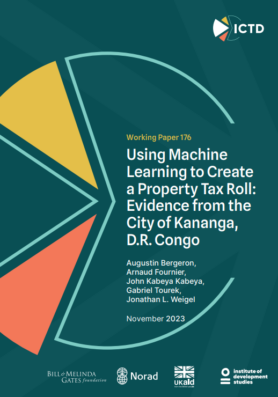Working Paper 176
Developing countries often lack the financial resources to provide public goods. Property taxation has been identified as a promising source of local revenue, because it is relatively efficient, captures growth in real estate value, and can be progressive. However, many low-income countries do not collect property taxes effectively due to missing or incomplete property tax rolls.
We use machine learning and computer vision models to construct a property tax roll in a large Congolese city. To train the algorithm and predict the value of all properties in the city, we rely on the value of 1,654 randomly chosen properties assessed by government land surveyors during in-person property appraisal visits, and property characteristics from administrative data or extracted from property photographs. The best machine learning algorithm, trained on property characteristics from administrative data, achieves a cross-validated R2 of 60 per cent, and 22 per cent of the predicted values are within 20 per cent of the target value. The computer vision algorithms, trained on property picture features, perform less well, with only 9 per cent of the predicted values within 20 per cent of the target value for the best algorithm.
We interpret the results as suggesting that simple machine learning methods can be used to construct a property tax roll, even in a context where information about properties is limited and the government can only collect a small number of property values using in-person property appraisal visits.

